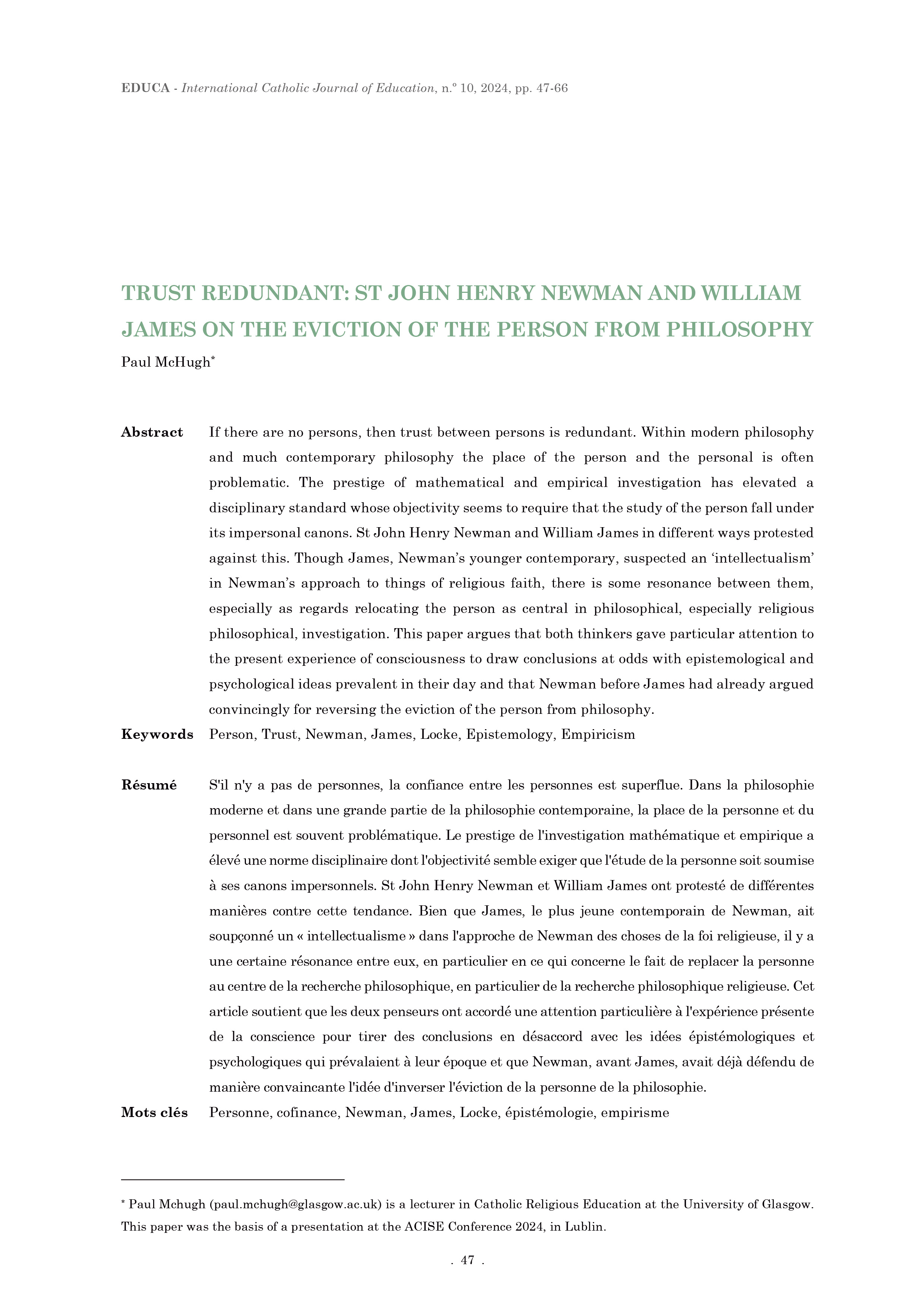Trust redundant: st john henry newman and william james on the eviction of the person from philosophy
Main Article Content
Abstract
If there are no persons, then trust between persons is redundant. Within modern philosophy and much contemporary philosophy the place of the person and the personal is often problematic. The prestige of mathematical and empirical investigation has elevated a disciplinary standard whose objectivity seems to require that the study of the person fall under its impersonal canons. St John Henry Newman and William James in different ways protested against this. Though James, Newman’s younger contemporary, suspected an ‘intellectualism’ in Newman’s approach to things of religious faith, there is some resonance between them, especially as regards relocating the person as central in philosophical, especially religious philosophical, investigation. This paper argues that both thinkers gave particular attention to the present experience of consciousness to draw conclusions at odds with epistemological and psychological ideas prevalent in their day and that Newman before James had already argued convincingly for reversing the eviction of the person from philosophy.

